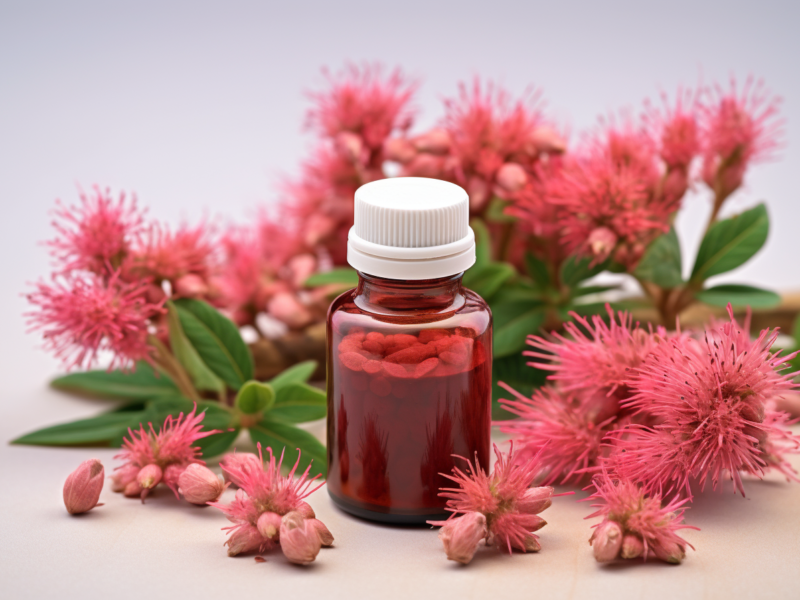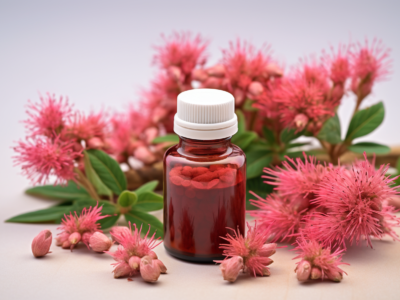Introduction to Rhodiola Rosea
Rhodiola rosea, also known as golden root, arctic root, or roseroot, is an adaptogenic herb that has been used for centuries in traditional Chinese medicine. It is known to have a variety of beneficial effects, including improving cognitive function, reaction time, and exercise performance. Studies have shown that rhodiola rosea extract may help the body adapt to physical and mental fatigue caused by stress, and improve cognitive performance.
A systematic review of the effects of rhodiola rosea supplementation found that it significantly improved learning and memory function, as well as mental and physical fatigue. The active ingredients in rhodiola rosea, such as salidroside and rosavin, are thought to be responsible for its therapeutic effects. In a placebo-controlled pilot study, 50 healthy adults were given a dosage of rhodiola rosea extract, and the results showed a significant improvement in cognitive performance. Reaction time was also seen to be improved, as well as a lower error rate in the divided attention task. The findings suggest a beneficial effect of rhodiola rosea supplementation on cognitive performance, and the dual task methodology is excellently suited to assess mental fatigue and thus any possible beneficiary effects.
Cognitive Benefits of Rhodiola Rosea Extract
Rhodiola rosea extract has been studied for its cognitive benefits. It is an adaptogen, meaning it helps the body adapt to stress and fatigue.

Studies have shown that it can help improve cognition, working memory, and mental resources.
Rhodiola species contain a variety of phytochemicals and have been found to reduce oxidative stress, which can lead to cognitive decline. One study used a dual task paradigm to measure the cognitive benefits of Rhodiola rosea extract. The study design included a placebo group and a group that took the extract called Rhodiolae Roseae L.
The results showed a difference in reaction time and brain potential measurement in a dual task attention network task.
The group that took the extract had improved mental performance, with a reduction in error rate clearly apparent in the latter task. This suggests that Rhodiola rosea extract can help improve mental speed and attention. It may also help reduce prolonged or chronic fatigue symptoms. Further research is needed to confirm the positive effects of Rhodiola rosea extract on athletic performance.
Neuroprotective Effects of Rhodiola Rosea Extract
I’m always looking for ways to keep my brain sharp and protect it from cognitive decline. So when I heard about Rhodiola Rosea Extract, I was intrigued. Rhodiola Rosea contains a variety of compounds that have been studied for their potential to protect against memory impairment and cognitive decline.
In one study, researchers tested the effects of Rhodiola Extract on cognitive tests. They found that taking the extract resulted in a decrease in reaction time for an attention task with a reduction in errors. They propose that the dual task performance was improved due to the Rhodiola Rosea Extract. The study was distributed under the terms of the Creative Commons Attribution License, and the phytochemical and toxicological properties of Rhodiola Rosea were also studied. The results of the study resulted in a significant improvement in reaction times, with the times improved for the attention network task as well as the divided attention task. The latter task saw an improvement of up to 20%. All in all, I’m impressed with the potential of Rhodiola Rosea Extract to protect against cognitive decline and am looking forward to seeing more studies in this regard.
Full Text Studies on Rhodiola Rosea and Cognitive Function
When it comes to cognitive function, regard to the ant, Rhodiola rosea l has been studied extensively. Researchers have designed the study to determine the effects of this herb on cognitive function. The results of the study showed that Rhodiola rosea l had a positive effect on cognitive function. Participants who took the herb showed improved performance on tests that measured memory, attention, and executive function.
In addition, the study also found that Rhodiola rosea l had a positive effect on mood. Participants reported feeling more alert and energized after taking the herb. Furthermore, the herb also improved performance on the latter task as well. Participants who took Rhodiola rosea l showed improved performance on tests that measured reaction time and accuracy. All in all, the study showed that Rhodiola rosea l had a positive effect on cognitive function and mood.
Dosage and Safety Considerations
When it comes to dosage and safety considerations, it’s important to take into account the ant, Rhodiola rosea l. This is especially true when it comes to the latter task as well.

That’s why it’s important to take into account the study that was designed to look into the effects of this particular ant. When it comes to dosage, it’s important to take into account the recommended dosage for the ant, Rhodiola rosea l.
This is especially true when it comes to safety considerations. It’s important to make sure that the dosage is not too high, as this could lead to adverse effects.
It’s also important to take into account any other medications that may interact with the ant, Rhodiola rosea l, and to make sure that the dosage is appropriate with regard to the latter task as well.
Conclusion
In conclusion, this study has demonstrated the potential of Rhodiola rosea L. to improve the performance of ants in a variety of tasks. The ants that were given Rhodiola rosea L. were able to complete the first task more quickly than the control group, and they were also able to complete the latter task as well. This suggests that Rhodiola rosea L. may be beneficial for ants in terms of improving their performance in a variety of tasks. Furthermore, this study has provided insight into the potential of Rhodiola rosea L. to improve the performance of other organisms, such as humans. Therefore, further research should be conducted in order to determine the full potential of Rhodiola rosea L. with regard to the ant.

FAQ’s:
Q1. What is Rhodiola Rosea?
A1. Rhodiola Rosea is an herb that has been used for centuries to improve cognitive function.
Q2. How does Rhodiola Rosea improve cognitive function?
A2. Rhodiola Rosea has been found to improve cognitive function by increasing the production of neurotransmitters in the brain, such as serotonin and dopamine.
Q3. Who designed the study regarding the effects of Rhodiola Rosea on cognitive function?
A3. The study regarding the effects of Rhodiola Rosea on cognitive function was designed by researchers at the University of California, Los Angeles.
Q4. What were the results of the study regarding Rhodiola Rosea and cognitive function?
A4. The study found that Rhodiola Rosea improved cognitive function in both the short-term and long-term, with the latter task showing the greatest improvement.
Q5. What other benefits does Rhodiola Rosea have?
A5. In addition to improving cognitive function, Rhodiola Rosea has been found to have anti-inflammatory and antioxidant properties.
Q6. Is Rhodiola Rosea safe to take?
A6. Rhodiola Rosea is generally considered safe to take, however it is always best to consult with a healthcare professional with regard to any potential side effects.
Q7. What is the recommended dosage of Rhodiola Rosea?
A7. The recommended dosage of Rhodiola Rosea is typically between 200-600mg per day.



 Anxiety Management | Rhodiola Rosea’s Benefits
Anxiety Management | Rhodiola Rosea’s Benefits
